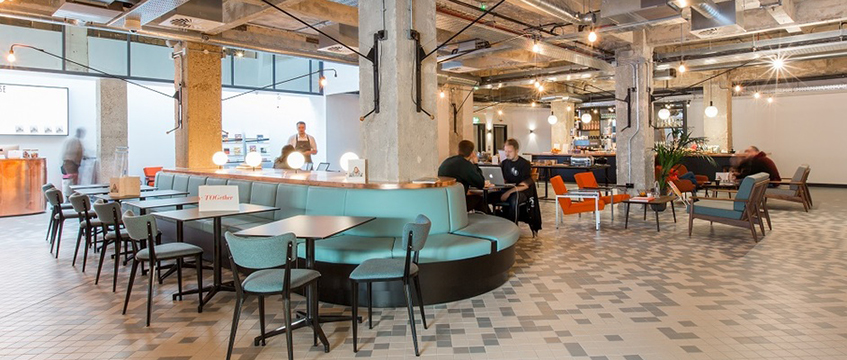LISTEN: New entrants to the co-working and flexible office space market are in danger of financial failure – but this will bring consolidation opportunities, according to one of Blackstone’s top UK executives.
Blackstone bought The Office Group for £500m last June, and there are now more than 90 companies offering flexible and co-working space in the UK, with the likes of British Land and the Crown Estate also creating their own offerings. And the private equity firm already has its eye on the potential opportunities a downturn may bring.
“We believe there will be some shuffling of cards over the next two or three years, and how the market responds to that will create great opportunities,” said Blackstone managing director James Lock, speaking at CBRE’s London Market Insight Series.
Lock said the operational complexities of running such businesses were being underestimated, and as a result they could suffer financial distress if the market slowed.
In 2009 when the financial crisis began to bite, TOG’s revenue declined 12% he added, but claimed this had been ‘manageable’ and top locations still performed well.
“There are a lot of firms potentially coming to the sector late who haven’t got the insight around how you operate and run these businesses. They are [like] hotel businesses. It’s about the bottom line, it’s about efficiency of management, it’s about practical management and people can get caught out, and so consolidation will arise and there will be some adjustment, but established brands, hopefully TOG, hopefully WeWork [a tenant in some Blackstone-owned buildings], will continue to basically perform in that cycle,” he said.
WeWork’s hyper-growth – five things you need to know
Parts of the investment market had struggled to come to terms with the covenant strength of co-working or serviced office providers, but Lock said that through performance it was possible to prove institutional quality.
“[TOG is] a great opportunity for us to leverage our experience in terms of working with operating companies and actually understand probably more… how you can package this from an institutional perspective and also from a financial perspective. Because today the assumption that you can’t basically generate the sustainable levels of income that people like ourselves require is flawed.
“It requires education, it requires insight, it requires people like WeWork to prove their business case and people like TOG to prove their business case, which we’re doing. The idea that sort of [traditional] covenant and income alone drives the prerequisites for risk and value is floored. You’ve got to look at the stickiness of the income [of a serviced office], the demand drivers… and you’ve got to get comfortable with the underlying business.”
To send feedback, e-mail Louise.Dransfield@egi.co.uk or tweet @DransfieldL or @estatesgazette











